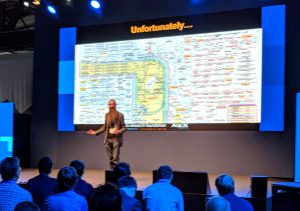March 11, 2023
Meeting an old friend for the first time
I just posted at Psychology Today a brief and personal story about realizing that my relationship with a person I’ve seen only a relatively few times spread out across four decades constitutes an old and close friendship that matters a great means to me. This is a type of friendship I had not expected.
(Not a spoiler: The person is Jon Udell. He’s currently doing really interesting work at Steampipe.io.)









